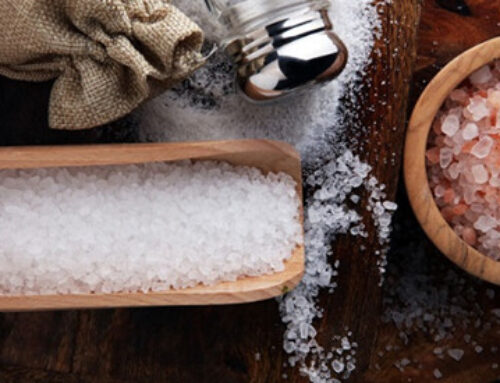For the last seven years, the nutrition community has focused on eliminating trans fat from our diets. Primarily found in packaged and processed foods, trans fats have been proven to increase unhealthy cholesterol levels in the body, reduce heathy cholesterol, and lead to heart disease. In 2013, the FDA released a statement saying trans fats are no longer “generally recognized as safe” and began steps to reduce and eventually eliminate them. While this statement is certainly a positive step, there is very little information regarding the dangers of other—perhaps more toxic—fats that are commonly used in commercial cooking and home frying. These other fats, known as polyunsaturated fats, may be even more destructive to the human body than trans fats.
There are 3 basic types of fats: polyunsaturated fatty acids (PUFAs), monounsaturated fatty acids (MUFAs), and saturated fats. About 70 years ago, USDA food guidelines started to push polyunsaturated vegetable oils as a much healthier alternative to commonly used saturated animal fats. Man-made hydrogenated fats like margarine and Crisco were also touted as healthy alternatives to the scary saturated fats like butter, lard, tallow, suet, coconut oil, and palm oil. Saturated fats were believed to cause heart disease due to some terribly unscientific studies that were conducted during the 40’s and 50’s and several people pushing a faulty agenda based on faulty studies. One person that stands out for his strong opinions is a scientist named Ancel Keys, who conducted the famous Seven Countries Study. Keys ‘cherry-picked’ data as he examined the diets and heart disease rates in the US, Australia, Japan, and several European countries, and concluded that a diet low in saturated fat and high in MUFAs and PUFAs protected against this condition. Today, Keys’ conclusion has been criticized and many researchers maintain the opposite is true. (Ref. Teicholz; Ref. Wall Street Journal)
Saturated fats have a beneficial place in our diets. Humans have been consuming animal fats for millennia, and moving away from these traditional fats has resulted in disastrous modern-day health consequences. We have been using and consuming vegetable oils for the last 60 or 70 years, and the results are clear—these new vegetable oils we have added to our diet are very destructive to the human body, especially if the delicate fats are heated.
Smoking oil in a hot pan is a common indicator, although not the only indicator, that the oil has burned and is therefore damaged. Polyunsaturated vegetable oils are very fragile fatty acids. They have many molecular double bonds which increase the oil’s ability to oxidize easily and quickly when exposed to oxygen, light, and especially heat. Think about oxidation as metal rusting. This is the same thing that happens to our polyunsaturated vegetable oils once they are exposed to air. On the other hand, animal fats have no molecular double bonds, which makes them very stable when exposed to air, light and heat.
PUFAs are more stable when they are in their natural packaging (think nuts and seeds) but as soon as they are pressed or released and exposed to air, they immediately begin to break down or oxidize. Too often, the bottled oils we buy in the store are rancid at the time of purchase from the extraction process but also because they often sit far too long on grocery store shelves.
The most common types of oils used in commercial or home fryers are oils like soy, corn, canola, and sometimes even cottonseed oil. All break down easily into chemicals that are more dangerous than trans fats. The destruction to the fat molecule is so devastating that some refer to these damaged fatty acids as “super trans fats”. Studies show that these fats turn into extremely dangerous chemicals called “aldehydes”, (example: formaldehyde used to preserve frogs in biology classes) when they are heated. One reason we have not learned about these dangerous chemicals sooner is that they are so unstable they continue to change from minute to minute and this makes them very hard to study. The International Agency for Research on Cancer (IARC), part of the World Health Organization, has determined that the vegetable oils commonly used in restaurants are heated to levels that turn the oils into a “probable” carcinogen in humans (Report published in 2010 by IARC).
Aldehydes are considered to be very dangerous reactive compounds. They are known to cause rapid cell death, interfere with DNA and RNA and disturb basic cell functioning. Research shows aldehydes cause extreme oxidative damage to every possible kind of tissue at the levels that are normally consumed as part of the human diet. The aldehyde that has caused the biggest stir is a chemical called 4-Hydroxynonenal (HNE). There is strong evidence that HNE is involved in neurodegenerative diseases like Alzheimer’s. Yikes! Could it be we have swapped out our dangerous trans fats for something far worse? It appears we have.
Although there is plenty of evidence that says aldehydes are extremely toxic, as of now the FDA has not classified aldehydes as a toxin, and unfortunately, they are the only governing body that can make this determination.
Here is another problem of our Standard American Diet (SAD): no matter how you look at it, it is becoming more and more difficult to trust that the foods you buy are healthy. I recently took my girls out for a late, light, dinner after a wedding that served only dessert. They were hungry as they had stoically skipped the dessert, and I was too tired to make supper. We picked a restaurant we all agreed was probably the healthiest choice in the neighborhood. We chose the healthiest options we could find on the menu, including soups, salads, chili, and a side of mashed potatoes. The waiter was very interested in why we all declined the delicious hot cornbread. After visiting with us for a few minutes, he told us he was very interested in nutrition and had spent quite a bit of time studying an ingredient booklet with all the ingredients listed in the dishes his restaurant served. As I quizzed him, I found out just how fooled I had been by my choices. My delicious chicken soup was full of margarine, as were the mashed potatoes, even though my daughter had forgone the gravy due to the wheat in it. The salads were all dressed with the very oils I try the hardest to avoid; the olive oil had been adulterated with canola or soy, and even the chili had added margarine in it as well! Why would restaurants put these known unhealthy fats in the foods served to customers? Primarily because these cheap, unhealthy fats make the foods taste good and most people never think to ask if their mashed potatoes are made with real butter or margarine.
My suggestion to those of you who are interested in living a long and healthy life is to avoid eating in restaurants if you can’t see their ingredient lists. At the very least, stay away from fried foods, as they are cooked in ”fry oil,” a blend of soy and corn oil, or other PUFAs, which are very unhealthy even before being heated. If you are in a restaurant and are unsure of what to order, remember that you are buying a product, and you have every right to ask for certain things to be withheld from your plate. As with any product, you should always be able to buy what you want. Ask for your fish (or other entrée) and vegetables to be sautéed in butter and skip the vegetable oils altogether. Tell your server you want to be sure your food does not contain vegetable oils. Olive oil and lemon or vinegar is wonderful as a dressing, but avoid prepared salad dressings as they are almost always made with low quality, unhealthy (usually rancid) vegetable oils and other unhealthy fillers, emulsifiers and flavorings. I take my own dressing with me when I eat out and I am very selective about where I eat. And remember, the best way to avoid all this is to cook your own meals from scratch.
Becoming aware of the foods that cause disease is the most important step of all. There are many foods we have accepted into our diets that are not food at all. Many foods on the market today are filled with non-food substances like artificial colors, sweeteners, flavor enhancers, and additives (See my article Food Additives – at What Cost?, and my Dangerous Food Additives Table). It is important to seek out healthy, high-quality foods and avoid toxic ones. Healthy oils are organic, raw, fresh, and cold-pressed. Always use a good quality saturated fat to fry or sauté. I love to cook with butter and bacon fat saved from my morning bacon. Olive oil can be used for light sautéing but won’t hold up to high heat. Recently there have been some studies done regarding the quality of olive oils. Testing showed that a high percentage (up to 69%) of the oils purchased in the grocery store did not have in the bottle what was listed on the label and many were adulterated with soy or corn or other cheap oils. The reason for this could be that good olive oil is expensive, and it is very easy to fool consumers. Unfortunately, finding good-quality olive oil might require some due diligence and good detective work, but it tastes delicious and is well worth the effort.
Our bodies have evolved to run on certain nutrient-filled foods. Making the effort and taking the time to educate yourselves about healthy food will give you the ability to choose wisely. Cutting corners will lead to health problems and possibly early death, as bad food is not food at all but a toxin, and is poisonous to the body. Seeking these nutritious foods out will ensure good health for a lifetime.
In good health,
Kalene
Cited References:
1. Teicholz, Nina, 2014, The Big FAT Surprise – Why Butter, Meat & Cheese Belong in a Healthy Diet, Simon & Schuster. ISBN: 978-1-4516-2442-7
2. Wall Street Journal, May 2014, The Questionable Link Between Fat and Heart Disease. Read the full article. Click Here. Accessed February 2015.










